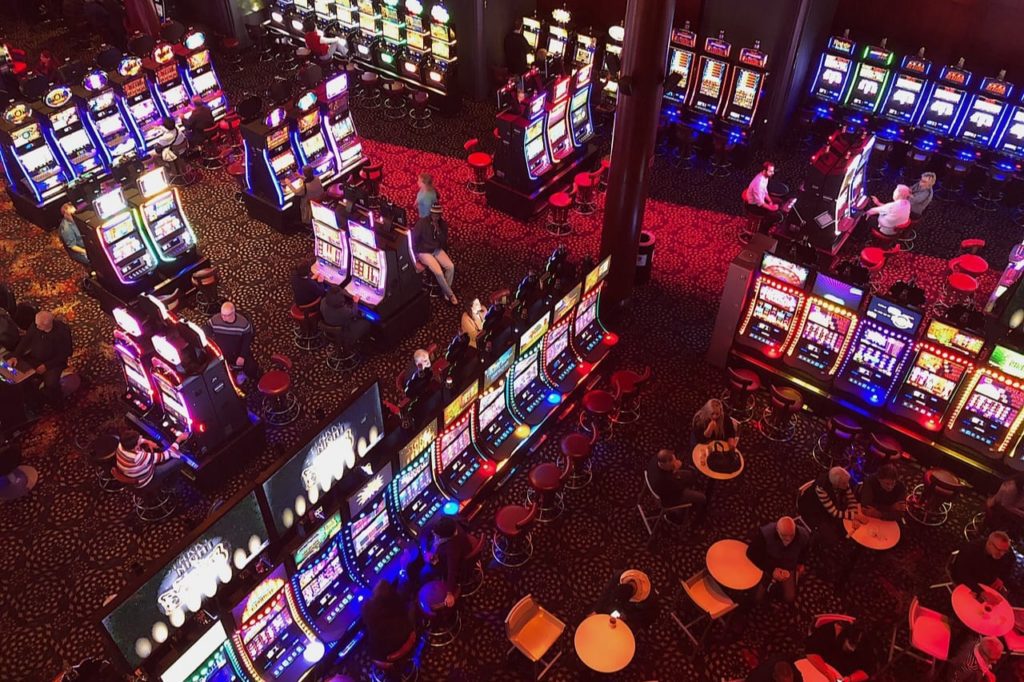Historically, brick-and-mortar casinos projected vastly different profiles. From the dusty saloons of the American Wild West where games like poker evolved to the big business tycoons staking their claim on the Atlantic City boardwalk, vibrant imagery accompanies the casino of the American imagination.
However, gamers who regularly visit land-based casinos know that the standard experience varies depending on location, but also, that it improved over the years. Even standard casinos outside major hubs include a vast floor with a high-stakes lounge, alleys of various slot games, and maybe a few shops or restaurants.
Today, brick-and-mortar casinos from the Vegas Strip to Atlantic City offer competitive and exclusive deals for their top spenders. VIP programs developed in the early 2000s helped attract gamers back to high-stakes lounges—but today’s online casino sector is taking a huge bite out of key demographics that once visited land-based casinos.
Competition from Online Sites
According to Statista, online gaming will be valued globally at $92.9 billion by 2023. This figure shows a staggering upswing in the public’s interest in playing slots and poker online. At the moment, popular brands are looking to expand—particularly in North America.
There, groups like Unibet Canada are enhancing their suite of offerings, including welcome bonuses. But despite the ample interest from the public in online casinos and a valuation of nearly $100 billion in the coming years, land-based locations aren’t likely to disappear.
However, they will have to pivot with an industry that’s moving online and rely on building an unforgettable experience for visitors. As with major moves from Vegas and Atlantic City casinos in the early 2000s, special promotions and other exclusive deals will be necessary to keep regular gamers.
From big to small business, the tech jump is crucial. And the easiest move for most successful casinos seems to be to join the online race themselves.
The Jump Online
For a long while, land-based casinos benefitted from stringent laws that prevent online gaming. Groups like Forbes have followed the battle between online and brick-and-mortar offerings to see which would strike gold with American gamers once the field was leveled in terms of legality.
Abroad, casino brands didn’t face legality issues. Many brands were able to develop and perfect their sites long before most American counterparts. For the top names in Vegas and Atlantic City, like MGM and Caesar’s, their priority now is to launch top-tier online casinos that can buffer the loss of in-person gamers at their establishments.
However, given the inundation of other successful groups in the online sector, MGM and Caesar’s will need to do more than jump online.

Delivering on Other Options
When comparing the gaming meccas of Macau and Vegas, it becomes clear that the City of Lights is about more than ceramic chips. In 2018, Macau managed to bring in over $37 billion in gaming revenue, while Vegas lagged far behind with “just” $11.9 billion. However, this figure relates to money handled in gaming alone.
One way that land-based casinos (in Vegas and beyond) can compete with the online sector is to bolster their offerings. Already, Vegas pulls in a considerable chunk of its revenue not from gaming, but from room prices, food and beverage, nightclubs, and other entertainment offerings.
In Macau, casinos like the Venetian and the Wynn both made well over 80% of their income from gaming alone. In the US, it’s common for the same casino chains to rake in a majority of their earnings from hotel rooms.
For now, the future of land-based casinos seems bound to evolve rather than disappear entirely. The experience associated with casino floors and in-person gaming can’t be topped by online simulations, but even the most well-established resort groups will need to find a way to draw in guests by increasing their non-gaming offerings—which Vegas has already done well to do.
By establishing casinos as one-stop shops for entertainment, including sporting events, movie premiers, and music concerts, top casinos and resorts can power through the digital era.





